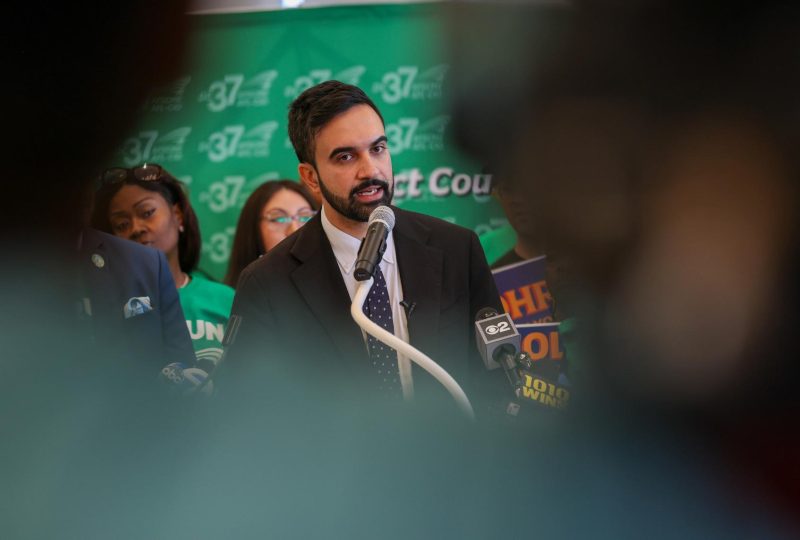
Zohran Mamdani’s victory in the New York City Democratic mayoral primary has exposed a deep fissure within the party. While he secured the nomination, key Democratic figures, including Representative Hakeem Jeffries and Senator Chuck Schumer, have notably withheld their endorsements. This hesitancy, mirrored by other prominent Democrats, has left some progressives questioning the long-held principle of ‘vote blue no matter who.’
The reluctance to embrace Mamdani stems from concerns about his progressive platform and his ties to the Democratic Socialists of America (DSA). Representative Laura Gillen, for example, openly labeled him “too extreme.” This selective support highlights a perceived double standard: while the party’s liberal base is expected to consistently support Democratic candidates, regardless of ideology, moderate and conservative Democrats feel empowered to choose their endorsements based on individual candidates.
Faiz Shakir, a former senior advisor to Senator Bernie Sanders, argues this selective endorsement process sends a damaging message to newer, more progressive voters. He contends that the party prioritizes maintaining its existing power structure over expanding its base, alienating those who feel their voices are not valued. This, he says, echoes the party’s handling of Sanders’s presidential campaigns, ultimately driving away energized supporters.
Mamdani’s campaign, however, stands out for its success in engaging young voters and those previously disengaged from the political process. His ability to re-engage voters who didn’t support Vice President Kamala Harris in 2024 is particularly noteworthy. This success further underscores the disconnect between the party establishment’s approach and the needs of its broader base.
The situation is further complicated by the fact that Mamdani faces two other Democrats, the incumbent mayor Eric Adams and Andrew Cuomo, running as independents in the general election. This mirrors the 2006 Connecticut Senate race, where a similar lack of party unity resulted in the loss of the Democratic candidate.
Matt Bennett of the centrist group Third Way defends the party’s hesitation, citing Mamdani’s close association with the DSA and concerns about certain aspects of their platform, such as their stance on the carceral state. He suggests that these positions are too radical for mainstream politics and could be used against other Democrats. He notes that other progressive politicians, despite their own progressive leanings, haven’t faced the same level of resistance, attributing this to their less pronounced ties to the DSA.
However, Ana María Archila, state co-director of the Working Families Party in New York, dismisses this concern, emphasizing that the majority of elected Democratic officials in New York City have endorsed Mamdani. She suggests that the hesitation stems from risk aversion and a focus on potential short-term political impacts rather than on connecting with voters on a deeper level.
Ultimately, the situation surrounding Zohran Mamdani highlights a significant internal struggle within the Democratic Party. The question remains whether the party will prioritize unity and inclusivity, embracing its diverse base, or continue down a path that risks alienating a significant portion of its voters.










